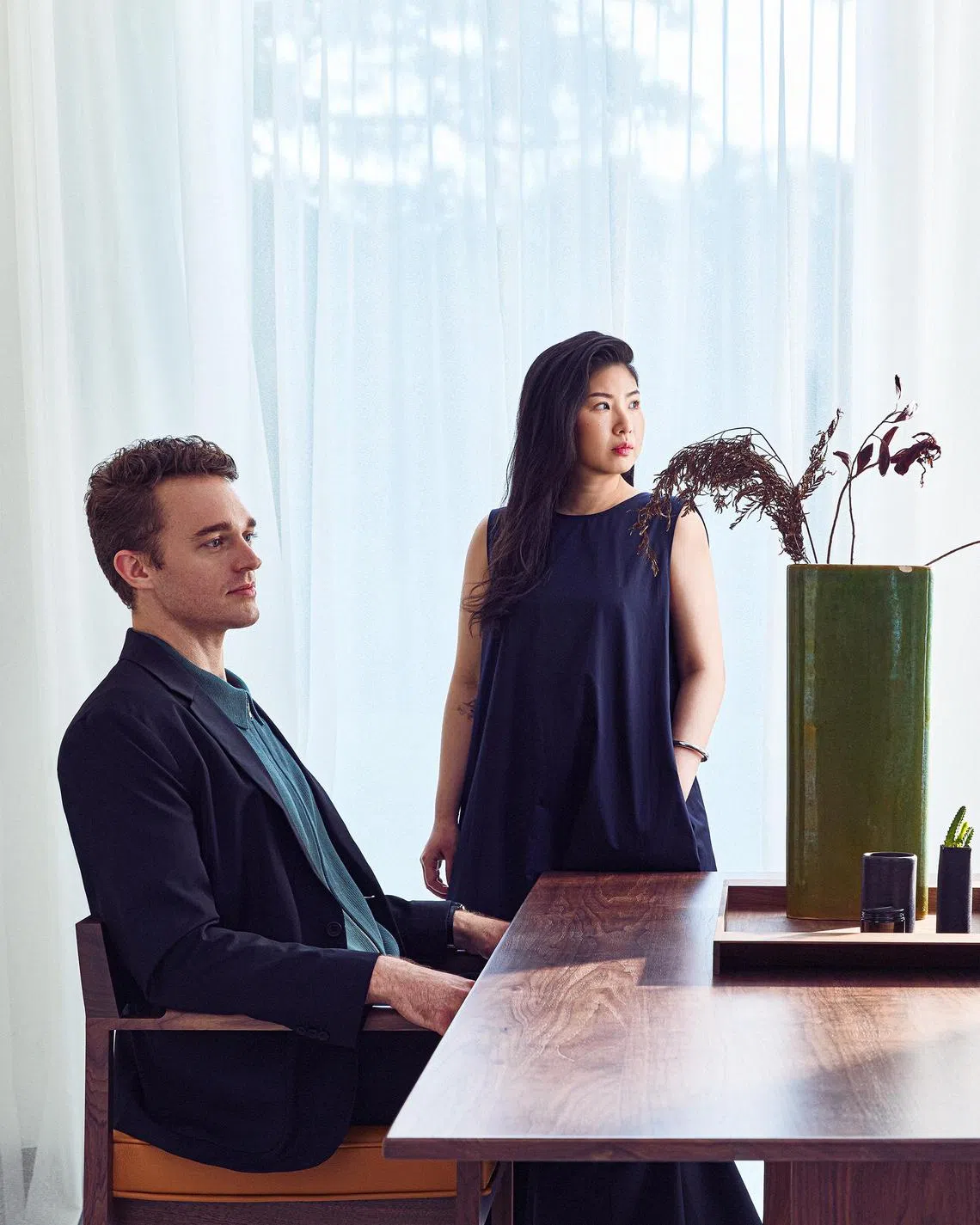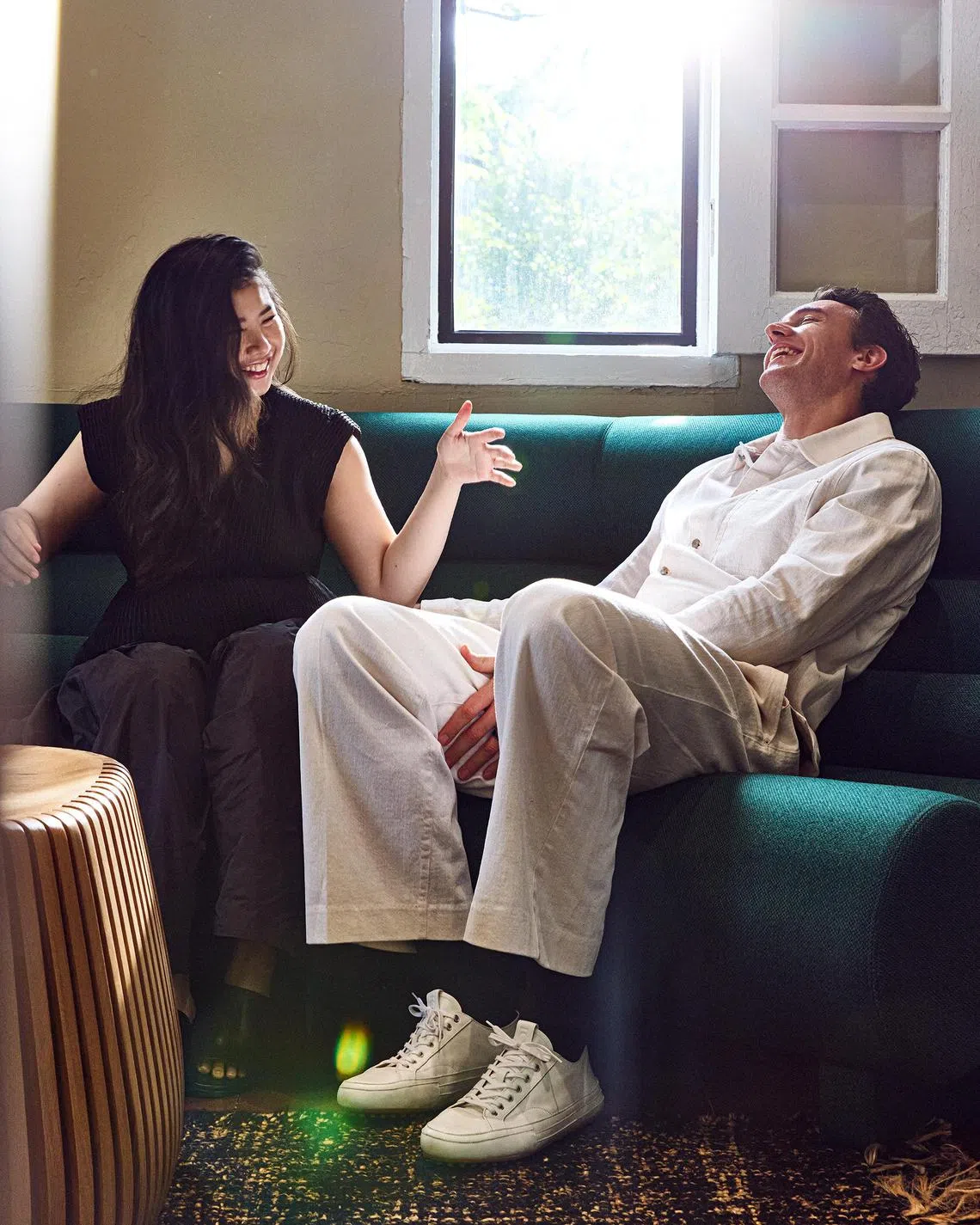They built a startup while battling cancer
Melissa Ng and Rackley Nolan had a meet-cute romance – until it wasn’t

NOT ALL STARTUPS ARE BORN in boardrooms. Some begin in hospital beds, where a future founder is hooked to an IV drip, staring down the last days of her life, rehearsing her final goodbyes to her loved ones.
Melissa Ng was just 31 when doctors diagnosed her with leukaemia. What had seemed like mere fatigue and burnout – symptoms not unfamiliar to any founder – turned out to be something far more terrifying. “It felt like the ground fell away,” she recalls. “I remember thinking, this is it. This is the end.”
Following the diagnosis was a blur of chemotherapy, blood transfusions and isolation. But amid the fear, Ng’s focus shifted outward. “I didn’t want to die,” she says, “because I couldn’t bear to disappoint the people trying to keep me alive. These doctors, these nurses, these people who loved me.”
One of those people was Rackley Nolan – her New Zealander boyfriend at the time, and eventually, her co-founder and husband. While she fought for her life, he stood beside her, cooking, caring, figuring out day by day how to cope in Singapore, a country where he had no family, no base and no road map.
Their modest wedding took place in 2019, in a small ceremony by the sea, just after her first round of chemotherapy. A few months later, as Singapore commenced restrictions amid the Covid-19 pandemic, the couple quietly began building the startup that had been, until then, just an idea.
That company would become Bravely (bravely.io), a mental health platform not built to disrupt, but to support – shaped not by hustle, but by healing.
From ski slope to startup
Ng and Nolan met in Wanaka, New Zealand, in 2017. She was skiing; he was snowboarding. She was a digital nomad who’d spent the better part of a decade running a design studio remotely, launching apps for clients such as Visa and Samsung. He had just finished a master’s degree in geology and was working with his cousin on environmental research.
“There was chemistry from the start,” Nolan recalls. “She was unlike anyone I’d met. Stylish, incredibly sharp, and just living this digital nomadic life that was so foreign to me. I was blown away.”

They had a fling – which would have stayed that way if not for a twist of bureaucratic fate. In 2018, Nolan attempted to enter the US for a six-month solo hike, but was denied entry due to visa issues. He was given a choice: fly back to New Zealand, or return to his last port of entry – Singapore, where he had a transit.
He chose Singapore, so he could reconnect with Ng.
That’s when they started officially dating, living together in a small apartment, cooking meals and exchanging ideas. Ng, already running her UX studio Melewi, was battling depression and anxiety – a result, she says, of childhood trauma and undiagnosed ADHD. Therapy helped, but it wasn’t enough.
“I said to Rackley one day, ‘Wouldn’t it be amazing if there was an app that could help me between therapy sessions?’” she remembers. “Just something small and steady that felt like support. Not like another mindfulness app. Just real support.”
At the time, it was nothing more than a daydream. But the idea stayed. “I couldn’t shake it,” Ng says. “Out of all the random things we thought of, that one stuck.”
Life, interrupted
Just as Bravely began to take form, Ng’s health collapsed. She was diagnosed with leukaemia at the end of 2019 while they were back in New Zealand for another winter season.
“She was getting really tired,” Nolan says. “We went to the doctor, and after a bunch of tests – and one dismissal – they finally diagnosed her. She was admitted straight away.”
Ng received a stem cell transplant in April 2020 – the same week Singapore’s “circuit breaker” kicked in. Nolan, who had no family or support network in the country, found himself navigating hospital visits, supply runs and late-night anxieties all by himself.
“It was scary,” he says. “I didn’t know anyone here yet. No friends, no family. I just had to figure it out.”
For Ng, the illness became a crucible – burning away distractions and doubt. “It changed me. I suddenly knew exactly what I wanted to do,” she says. “And Bravely wasn’t just an idea anymore. It became a mission.”
Building Bravely
Ng and Nolan had launched the company in 2019, before her diagnosis, but only began seriously building its first product after her recovery. She served as CEO and head of product, drawing on her years in UX design. Nolan, who jokes about being a geologist-turned-startup-operator, handled sales, onboarding and operations.
“I do a lot of customer FaceTime,” he says. “And a bit of code, too. But mostly I’m listening. What are the pain points? What’s wasting therapists’ time?”
Their initial product was a consumer-facing mental health app based on Ng’s personal experiences. It offered tools that bridged the gap between therapy sessions – mood tracking, habit correlations and reflective prompts.
People liked it. But nobody wanted to pay for it.

Therapists, on the other hand, took notice. “At first, they’d share it with their clients,” Nolan says. “But then they started opening up about their own problems. The software they were using – or cobbling together from spreadsheets, PayNow, Google Docs – was a mess.”
Ng saw the opportunity hiding in plain sight. “Instead of the consumer, why don’t we build for therapists first? They’re underserved, burnt out, and drowning in admin.”
In 2022, three years and a cancer diagnosis since Bravely’s inception, they pivoted to a B2B model.
Today, Bravely is a clinical management platform for mental health practitioners. It handles everything from session notes and appointment scheduling to billing and patient privacy controls. More importantly, it’s designed with the nuance mental health work requires.
“Most EHRs are built for doctors,” Ng says, referring to electronic health records. “They have fields for X-rays or lab tests – but nothing for emotions or trauma. And therapists need a different kind of privacy. A supervisor shouldn’t be able to read a note that was never meant for them.”
The startup is now used by clinics across Singapore, with teams ranging from solo therapists to practices with 25 staff. Word-of-mouth referrals – the trust currency of the mental health community – have helped it grow.
And Bravely isn’t stopping there. “We’re working on the client-side app next,” Ng says. “Something that lets patients work with their therapist even between sessions. Small, steady tools that feel like a friend.”
Love is a long game
Ng and Nolan aren’t the kind of people who make grand gestures and big declarations.
Ask them what it’s like being married co-founders, and all you get is a calm, practised understanding of who handles what. “She’s product and vision,” Nolan says. “I’m ops and relationships. And we stay in our lanes.”
But beneath that clarity is a deeper truth: Bravely was never just a startup. It was how they learnt to survive together – first through illness, then through the unpredictable grind of building a company from scratch. The long nights, the hospital silence, the version-one misfires – these shaped how they work, how they argue, and how they hold the centre when everything around them shifts.
“We’re not trying to be the next big thing,” Ng says. “We’re trying to build something useful. Something that helps.”
Nolan agrees. “Therapists are these incredible, kind, intelligent people. They’re always giving. If we can give something back to them – tools that save time, reduce burnout – that’s worth it.”
That kind of ambition doesn’t come with unicorn valuations or headlines. But it shows up where it matters – in the trust of therapists, in the clients who feel seen, and in a partnership that learnt, early on, what caring for another person really means.
Photography: Darren Gabriel Leow
Fashion direction: CK
Make up & hair styling: Alison Tay, using Armani & Goldwell
Location: Nathan Home at 8 Baker Street
Decoding Asia newsletter: your guide to navigating Asia in a new global order. Sign up here to get Decoding Asia newsletter. Delivered to your inbox. Free.
Copyright SPH Media. All rights reserved.



